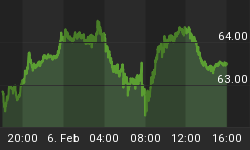With QE2 winding down, China raising interest rates, and debt problems in Europe, investors have not responded to strong earnings growth. According to Bloomberg:
Standard & Poor's 500 Index companies will earn 18 percent more this year than in 2010, according to the average estimate of more than 9,000 analysts compiled by Bloomberg. Higher profits haven't stopped the gauge from falling 6.8 percent since April 29, pushing valuations to the cheapest levels in 26 years. Even if companies posted no growth, price-earnings ratios would be lower than on 96 percent of days in the past two decades.
On June 16 and June 17, we outlined several levels to watch in terms of monitoring the short-term outlook for stocks, commodities, and currencies. The table below shows numerous markets and key levels as of Friday's close. The intermediate-term outlook remains concerning, but the short-term outlook requires some patience as long as the values in the table hold.
Using the first row as an example of how to read the table, 1,276 was an important level for the S&P 500. We closed Friday at 1,272 or below 1,276, which leans bearish for risk/inflation protection assets. The next level to watch on the S&P 500 is the 200-day moving average, which sits at 1,263.

If the levels above are violated in a bearish manner, especially at the end of the week, we would most likely raise some additional cash. We sold our remaining small stake in energy last week (XLE). We also sold our small position in real estate (IYR). Depending on how things play out this week, the next logical area for possible defensive action would be to sell a portion of a broad-based index, such as VTI or SCHB.
If the levels in the table above hold at the end of this week, we are open to more positive outcomes for stocks, commodities, and commodity-related currencies (FXA, FXC). Our large cash position gives us plenty of options in the event the markets surprise on the upside in the coming weeks.















